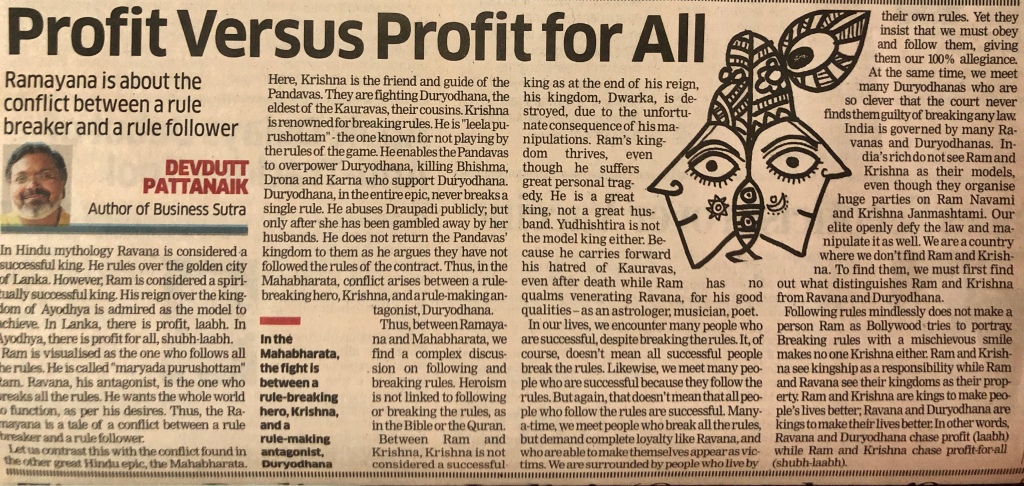How much ‘bad’ does the ‘good’ you have?
As a child, we are taught that one is either good or bad. It is an absolute judgement. Stories and movies and everything around us seems to inculcate the absoluteness of heroship and villainy. The good guy (mostly) emerges victorious. Even if he fails, the message is to stand up for the values and beliefs based on which the hero is to be worshipped, even if he died or lost the battle with evil.
Cut to young adulthood and you start categorizing people, places, countries, governments, bosses, colleagues and maybe even family members into ‘good’ or ‘bad’. Mostly this happens based on whether your views align with such people/governments and so on or not. Or whether they benefit you or not. I think young adulthood still goes by without second guessing oneself, feeling quite satisfied with this self classification, not to mention a strong conviction about one’s beliefs.
Then comes mid age confusion, existential angst and all of that . A realization dawns on one that things are not black or white. There is a lot of gray. Opinions and points of view come into play. Perspectives start to matter. The gray between the black and white start being visible.
What if you lie for the greater good (of someone or something)? What if you have been following a set of rules you believe in, until one day you discover that the foundation on which those were laid is not something you subscribe to anymore? What if you see that people you worship may have done things that you would normally consider dishonest, dishonourable or even immoral, and you yet seem to like them? What if you start tiring of idealism and an unwillingness to change view points in changing circumstances? Are rules important? Or beliefs? What about ethics? Morals? What about social impact?
And you realize that each case has to be merited on its own story, facts and circumstances. And that sometimes , perhaps even a lot of times, you are no one to judge. And that sometimes it is ok if you have misjudged. And sometimes you may change parties or beliefs maybe based on your own personal experiences. In the end, there are things we can tolerate and live with, and things we cannot. We do not need to judge, evaluate, classify and label all the time.
I found this article by Devdutt Pattanaik interesting and thought provoking too, bringing mythological references to how one conducts business. What do you think about it?


0 comments